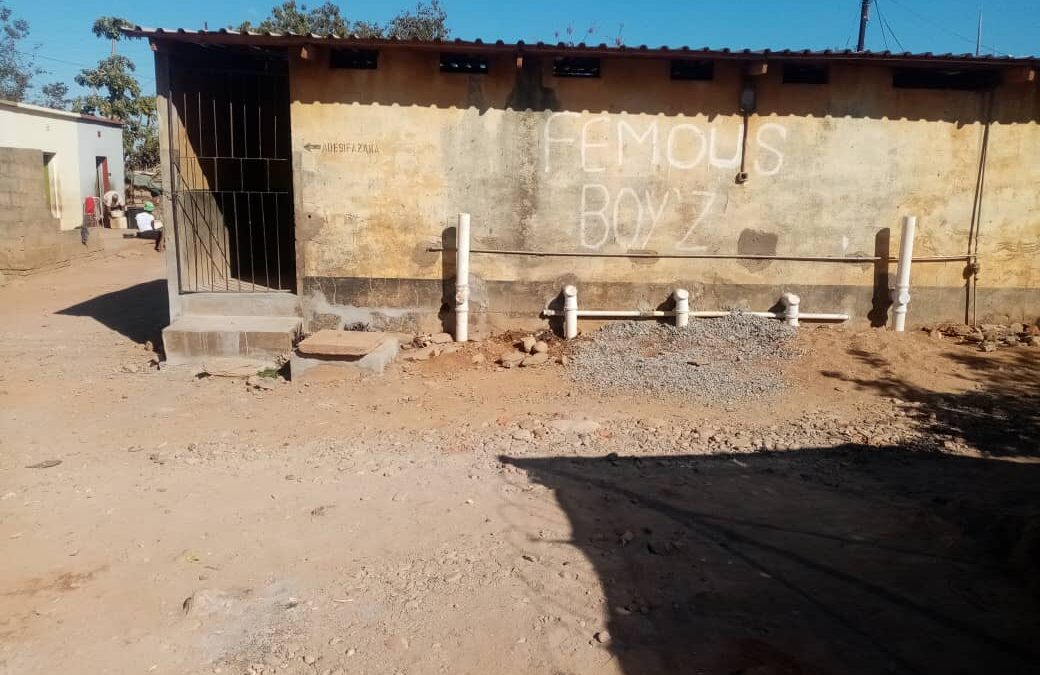By Bongiwe Dube
Answering the call of nature is a necessity, but it is important to understand that using a dirty toilet can open doors of deadly infections if care is not taken while using toilets. Ward 4 residents in Gwanda are in danger of contacting deadly infections and diseases due to lack of water in the public toilets they use.
“The situation is very bad. Lack of water in our toilets is contributing to bad odors and flies, which may lead to a catastrophe. Even if you cover your nose with a scarf, the smell is unbearable”. These are sentiments shared by one of Ward 4 residents in relation to the bad state of Ward 4 public toilets in Gwanda.
The residents allege that the ward has been abandoned as it faces a health crisis and are worried for the safety of their children and those that have aged.
They said that their children and the elderly must always have access to clean functioning toilets which are essential for their health and well-being. Women are also affected in a big way as some of them have become regular clients in hospital because of certain reproductive health diseases that started their journey in the dirty public toilet.
A resident claimed that her child had to miss school for days due to diarrhoea which she suspected was linked to her daughter using the unclean public toilets more often during her menstruation days.
Under the Zimbabwean constitution, access to sanitation, clean and safe water are basic human rights and core services that local leaders must provide for people. It is these rights that Ward 4 residents feel local leaders have infringed by letting their taps run dry for longer periods of time.
While residents agreed that due to some circumstances, tap water may not be available on a daily basis, however, they said local authorities should at least provide water bowsers during water load shedding periods which would help their public toilets stay clean.
One resident questioned the whereabouts of the toilet cleaners and the water bowser that was allegedly donated by Chicken Inn to ease water challenges in the Ward. “Where is that Chicken Inn bowser? It was brand new when it was donated but we have never seen it being used,” the resident probed.
A reliable source from the Municipality of Gwanda confirmed the donation of a water bowser by chicken Inn in 2014.
“I can confirm that Chicken Inn donated a water bowser to the Municipality in 2014. However, the bowser is no longer working, it is there by the council’s workshop. I do not even know what is wrong with it”.
In the same view, another resident said the issue with the Chicken Inn water bowser raises transparency and accountability issues within the local authority that need to be dealt with quickly.
The organization also spoke with Wellington Nare, the Secretary General of Gwanda Residents Association to confirm and find out more on the issues raised by the residents. Nare said the toilets are a health hazard since they are overwhelmed by over 300 people that use them.
“As we are having an energy crisis in the country it means there is reduced water pumping hours thus affecting the cleaning of the toilets due to water unavailability. As the Residents Association we have tried many options in engaging the council but the council is not prioritizing the issue. The council must take action and complete or assist in the completion of Jahunda Redevelopment project which has been delayed for the past 20 years.”
He said local authorities need to provide immediate solutions which include making sure that they supply water to clean the toilets whenever there is no supply of water in the area.
On the Chicken Inn donation claim, Nare said, “It is true and worrying that the vehicle is not serving its purpose and it remains unknown what it is serving when we have challenges that require the use of water bowsers.”
Over the years, the cleanliness of Ward 4 public toilets has been a challenge. CYDT has created several activities meant to provide a platform for Ward 4 residents to engage their leaders on the matter.
At times, residents have suspected and accused authorities of using poor quality material to renovate the toilets. They allege that within a month of the toilets being renovated, the new material used would have broken down.
Ends///


Recent Comments